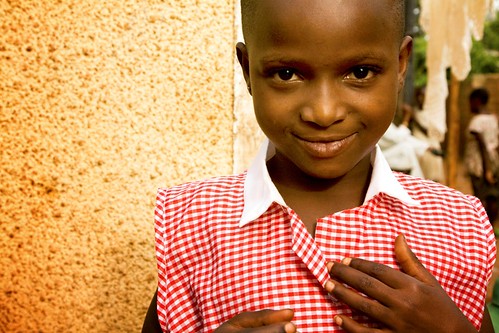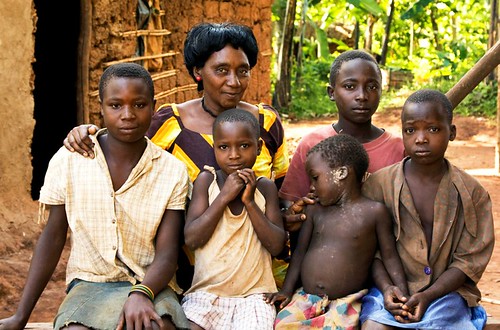And so now you may have an idea of some of the many challenges I’ve faced in setting up projects on my needy children’s behalf: the contention between family members whispered to me in private meetings around dinner tables and the open clashes between the family and outsiders I’ve involved on the projects and the all the whirling rumors and innuendo. And so now you may also understand how sharing works here and how individual ownership of any given thing from knickknacks and shoes and books to businesses and homes and farms does not have, like most everything else, quite the same meaning as it does in the United States.
And so now you might also see why it is amusing that Richard, my 14-year-old with the chronically infected leg, has taken to locking the toys given to him by my mom, his Jaaja Muzungu, in the flimsy cupboard crammed to the side of the kid’s small sitting room. He of course lets his sisters and little cousin play with them, more than willing to share, but he eyes them closely, watching them for unnecessary roughness or absentminded placement, sweeping up the dump trucks and motorcycles, sticking them into the cupboard after playtime is finished with a big grin, chatting and laughing, his pleasure impossible to mask in finally owning the shiny and unique. For a kid that maybe only had two torn shirts and a pair of pants to his name some months ago, not even having a toothbrush, a book, a hangar, a towel, a bed, a sheet, a pencil, a jacket to call his own, he was understandably a little possessive in a manner unusual to the culture, humorously so.
And it was also amusing last night as the kids bent over a large map I bought them, staring I suspected for the first time at the outline of the world and its wide lands and spacious seas and mazes of borders and networks of rivers, having asked the kids to find Uganda, which they did after a short while then asking them to find America and noticing that my 16-year-old, Agnes’ eyes continued to search over Africa scrutinizing the names of countries and cities in its midst for the letters U.S.A.
“No,” I said laughing, “it’s over here,” pointing across the large laminated page to the far right explaining to her the differences between the continents and oceans, which I knew she understood because I had just read through the neatly-printed notes in her exercise book on the subject. I saw little lights in her head flickering on connecting what she had learned in school with the map. Then as we tried hanging the map on the wall my four-year-old Rachel pointed to the wall opposite where another educational poster hung of the human body and she said, “Mommy, skeleton.”
And I responded surprised and proud, “Yes, Rachel it is a skeleton.”
And she said, “Skeletons’ bad.”
And then I made a face and giggled saying, “No, skeletons aren’t bad, they are good. You wouldn’t be able to move without them.” She didn’t understand exactly what I was meant I am sure, but she knew what a skeleton was and she wouldn’t have known and maybe never would have known if it weren’t for my being there through strange twists of fate and all the tremendous, absolutely critical support I’ve been given from friends, family and especially my parents to help these kids, so many close to me giving to five needy kids they don’t even know on the other side of the world.
And then I looked back up at the four older kids all still crowded around the map showing each other different places, eyes glowing, minds buzzing, the whole world opening up to them and it became all the more clear that they had in fact never even seen a world map before, and MIA’s lyrics flashed through my head:
I put people on a map who’ve never seen a map
I showed ‘em something they’ve never seen
And I hope they make it back
And I felt as if I stepped into the song, feeling like I was giving these children tools to make their lives better, but knowing that I could only do so much and they would have to do the rest with what they were given. But I was hopeful, am hopeful that they will proceed wisely since I know how far they have come, watching their tremendous progress, their great strides, their hard work before my eyes, witnessing reminders of what they’ve gained from knowledge in school subjects to life lessons taught at home, learning geography and biology as well as how to take care of what is theirs, toys and maps, family and love.








